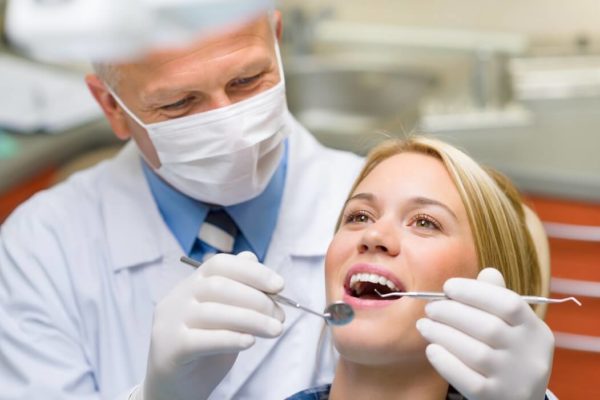Preventive dentistry is essential to prevent tooth decay and other dental diseases and pathologies that can put our health at risk. This in addition to helping to maintain better oral health, it also allows us to save money on expensive procedures, since problems are detected before they become serious dental complications. Let’s see below what preventive dentistry consists of, its benefits and what is our role in its practice. Read on!
What is preventive dentistry?
Preventive dentistry is a branch of dentistry. This analyses everything related to the affectation of oral health. From different infections and diseases, as well as prevention, especially in the case of cavities. It also treats lack of alignment of teeth, malformation of the same, trauma, among other pathologies.

The two main elements of preventive dentistry are prevention and early diagnosis. In the event that prevention is not possible, because cavities or malformations have not been located in time, an early diagnosis will serve to minimize the consequences derived, and to impose a rapid and effective treatment.
A knowledge of the causes and origin of diseases of the mouth will provide us with the necessary information to avoid them. Although it is often said that there is an irreversible natural process of wear of our teeth and the dental specialist will serve to solve the effects of this wear as it occurs, the reality is that it is possible to act directly against the causes responsible for the process, and prevent it from developing.
In this way, the sooner we start a preventive program with the help of a dentist, the sooner we will be laying the foundations to avoid cavities, diseases and malformations of our teeth, while we will detect any disease in its initial phase, and we will begin to enjoy an optimal oral health.
What are the benefits of preventive dentistry?

- It helps reduce the risks of developing tooth decay, gum disease, or more serious dental problems.
- Helps promote good oral hygiene habits, such as tooth brushing and flossing.
- It allows early identification of dental problems, so that their treatment and therefore their cost can be minimized.
- It enables dentists to perform a comprehensive examination of their patients’ mouth, jaw, neck and other organs to identify any related problems.
- Helps reduce dental problems related to certain chronic medical conditions. Diabetes, osteoporosis, certain cancers, and eating disorders can impact oral and dental health.
- For people with chronic diseases, preventive dental care is an important part of their overall health.
Basic aspects to implement preventive dentistry
Much of preventive dental care begins with ourselves. Developing healthy dental habits in the early years can help reduce cavities, gum disease, and gingivitis.
Dental hygiene at home
The most important prevention technique is tooth brushing. You should brush at least twice a day: morning and evening (preferably). In this way you can remove the plaque that accumulates on the teeth and the gum line.
The most common consequence of poor dental hygiene is the formation of cavities, but periodontal disease can also appear, which can be avoided or reduced with good tooth brushing and prevention.
Daily you should floss to remove the remains of food stuck between the teeth. Failure to do so turns into tartar. Also, remember to use a mouthwash to remove any food particles left over after flossing.
The use of fluoride
Fluoride strengthens teeth and prevents tooth decay. It is found in most toothpastes in addition to being in small amounts in the public water supply.
In children under 3 years of age, it is recommended to use a toothpaste that contains 1000 to 1450 ppm of fluoride and put a very small amount on their toothbrush.
Incorporate good habits into your diet
A balanced diet is essential for dental health. Foods with sugars and carbohydrates feed the bacteria that produce dental plaque. On the other hand, diets low in calcium increase the chances of developing periodontal disease and bone deterioration.
Some foods that improve oral health: green leafy vegetables, dairy products, cheese, apples, carrots and celery. Antioxidant vitamins like vitamin C and other nutrients that come from fruits and vegetables.
On the other hand, it is important to avoid acidic foods that can damage tooth enamel. Likewise, we must take care of hard foods that can damage or chip the teeth. Candies, foods with bones, seeds or fruit seeds are great enemies of the teeth
Regular visits to your dentist
The majority of dental affectations are painless in the beginning. Regular visits to the dentist are the only way to discover dental problems before they cause significant damage to your teeth, such as dental infections. Therefore, visit your dentist at least 1 time a year. Trust your dental health to quality and trusted dental specialists.

Regular dental cleanings
These are necessary to remove accumulated tartar and remove dental stains. Regular dental cleanings should be done every 6 to 12 months.
Cut down on alcohol and tobacco
These bad habits harm your oral health. They can lead to periodontal disease, tooth loss, and even oral cancer.
Protect your teeth
When practicing certain high-impact sports, such as rugby or soccer, always use a mouth guard, this will help you avoid dental injuries. Likewise, if you tend to clench your teeth when sleeping, you should ask your dentist to order a mouth guard to reduce gum recession.
Preventive dentistry can begin when the first tooth appears. It can help identify problems early in childhood, before they get worse and costlier, as they often do. Therefore, always keep in mind the importance that, dental prevention can bring you many benefits in the future. So, take care of your oral health for a beautiful smile!
This article is informative and is not intended to serve as a diagnosis, prescription or treatment of any type of ailment. This information is not a substitute for consulting a doctor, specialist or health professional.





ALFA